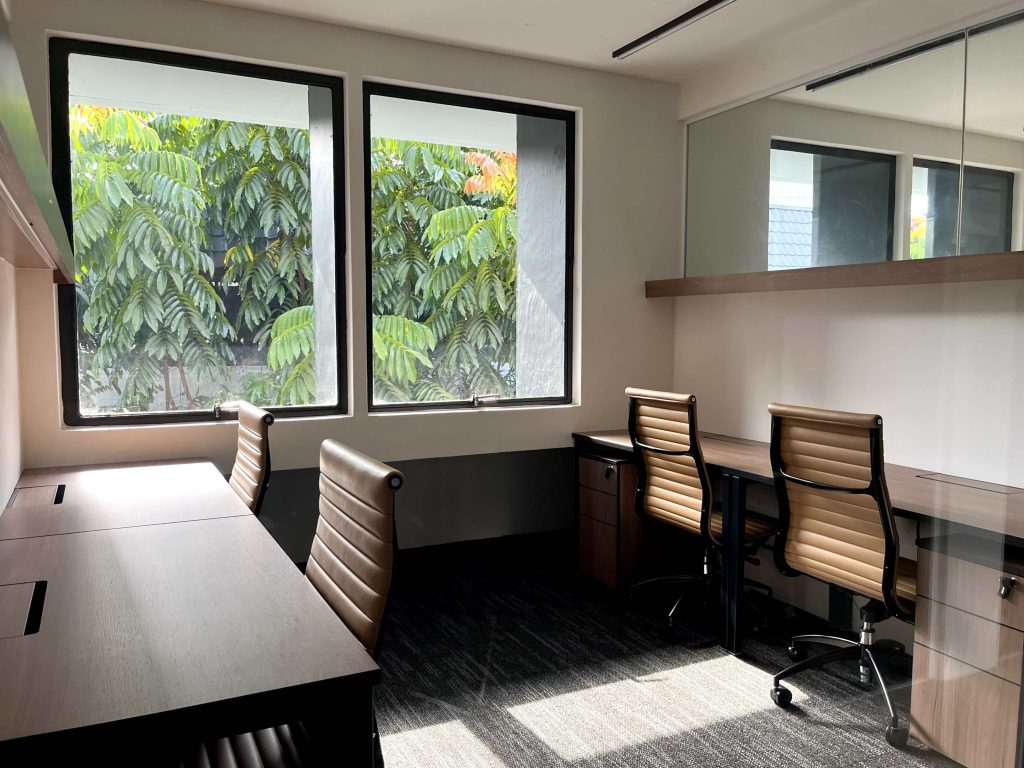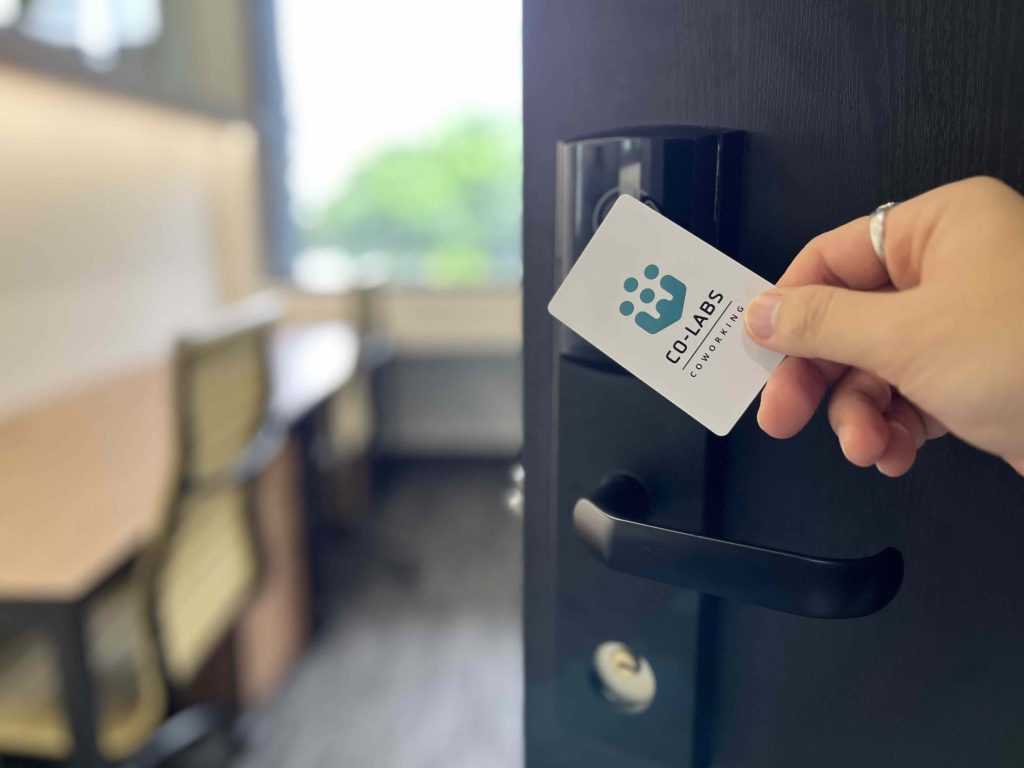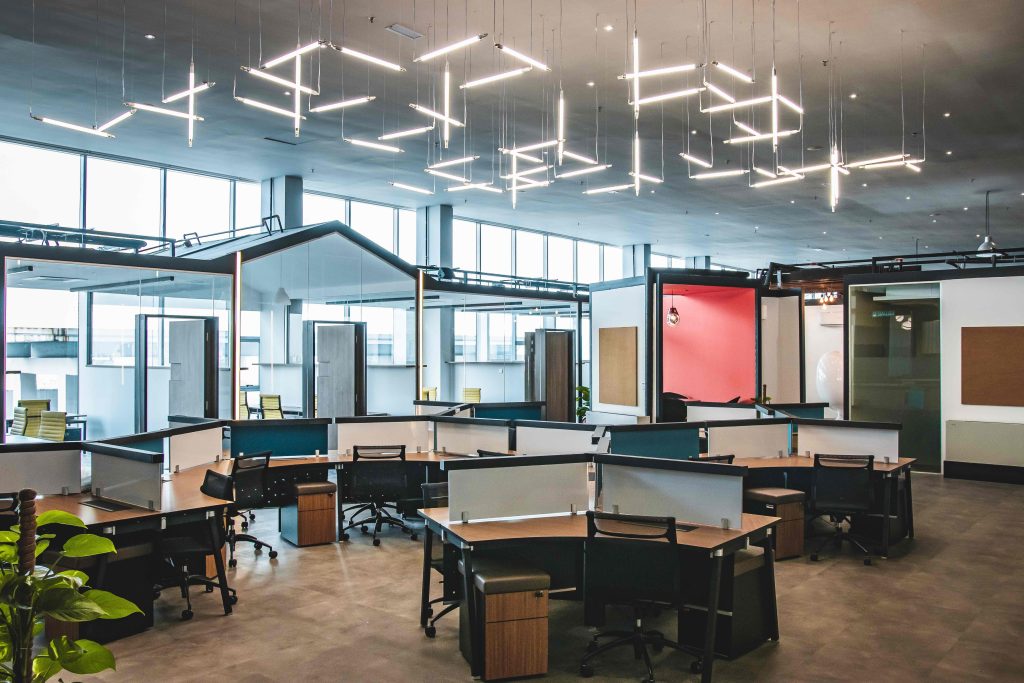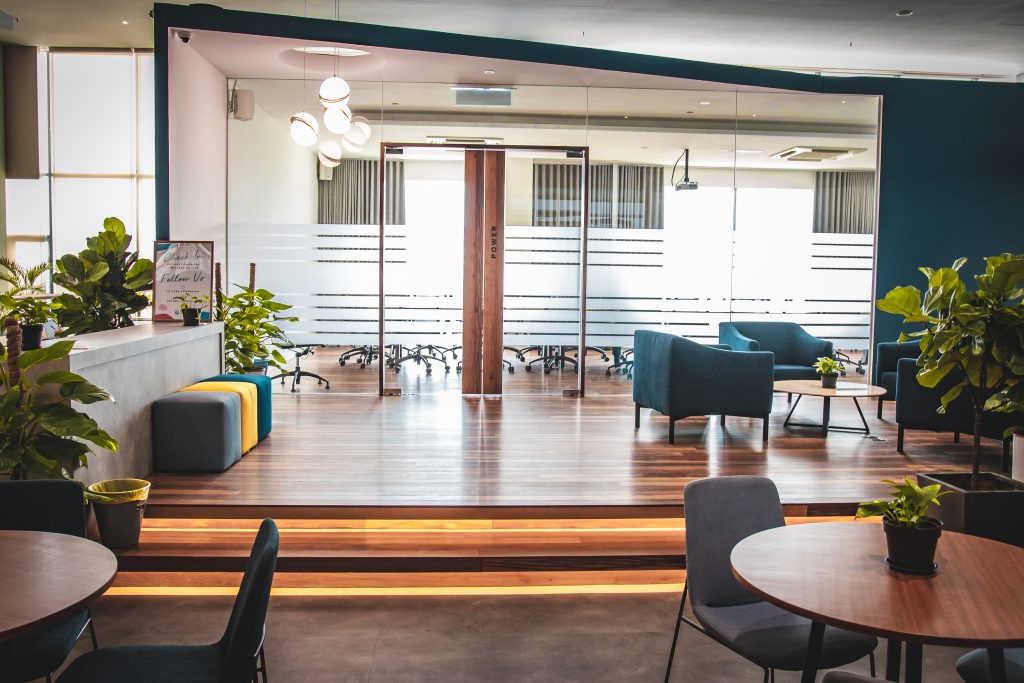The traditional office is phasing out. As teams expand and evolve, businesses have to embrace agility and efficacy, making the limitations of standalone offices increasingly apparent. In today’s dynamic business landscape, office setups need to have the flexibility to evolve and meet the changing needs of modern professionals.
Coworking spaces offer an alternative solution, it combines the privacy and focus of a private office, with the collaborative spirit and cost-effectiveness of a shared workspace.
This makes private offices in coworking spaces the optimal solution for businesses.
In this blog post, we’ll explore the disadvantages of a traditional office and advantages of adopting private offices in coworking spaces.
Disadvantages of a Traditional Office

1. High Financial Costs
Traditional offices demand significant upfront investments. Design, build, rent, utilities, and not to mention maintenance costs for a traditional office all quickly add-up, requiring businesses to fork out a substantial upfront cost. These ongoing expenses can hinder business growth and limit the allocation of resources to core operations.
2. Long-Term Lease Agreements
Traditional offices typically require long-term lease agreements, contracts of 2 to 5 years minimum, making it arduous to exit. This not only limits adaptability for expansion or contraction of operations due to market conditions, it could also potentially lead to overcrowded or underutilised workspaces.
3. Less Work Flexibility
In a traditional office setting, employees have little opportunity for flexibility in their work schedules. This rigid working pattern goes against today’s working climate where employees prioritise a work-life-balance. In turn, the rigidity could result in stress and decreased productivity and performance output.
4. Isolation and Limited Networking Opportunities
In contrast to the collaborative atmosphere of coworking spaces, traditional offices often foster isolation. Employees are confined to individual workstations, limiting interaction and knowledge sharing. This lack of networking opportunities can hinder innovation and professional development.
Advantages of Private Offices in Coworking Spaces

Coworking spaces cater to a wide variety of business sizes and industries. From a professional address, to custom-built enterprise solutions for scaling businesses, coworking spaces offer flexibility and scalability. Making private offices in coworking spaces the optimal solution for businesses.
1. Privacy
Having private offices in coworking spaces provides a private space for confidential discussions and strategy meetings without risking breach of sensitive information. In addition, having your own private office also serves as a versatile setting to conduct meetings and interviews with privacy.
2. Security and Confidentiality
Opting for a private office in a coworking space also means additional security and confidentiality. This is especially vital for companies in the banking, law or cyber securities industries.
Coworking spaces are also embracing modern technology, allowing members to access private offices with a simple tap of their membership card which eliminates the need for keys.


3. Reduced CapEx (Capital Expenditures)
Running a company, especially a startup, can be financially demanding. In addition to the cost of rental, furnishing and maintaining a traditional office space can significantly increase your expenses. Coworking spaces often offer fully furnished private offices, helping you to reduce upfront costs and streamline your operations.
4. Maintenance and Upkeep
Traditional offices demand constant attention to maintenance, utilities, and operational tasks. From repairing faulty equipment to managing utility bills, these responsibilities can be time-consuming and disruptive to core business activities. Coworking spaces eliminate these headaches by handling all operational aspects.

5. Reduced OpEx (Operational Costs)
Private offices in coworking spaces grant businesses shorter term leases, providing flexibility for scaling companies. Coworking spaces offer ready-to-move-in workspaces, move in and start working immediately, saving time and resources.
Let the coworking operator handle the day-to-day, outsource the need for a dedicated reception, cleaner, and operational staff. Overall this helps to reduce costs, allowing businesses to focus on their primary goals.
6. Enhanced Productivity
Private offices in coworking spaces eliminate noise and distractions commonly found in an open layout. Allowing employees to stay focused and get into flow state, ideal for professionals such as developers, writers and data analysts.
7. Improve Collaboration
Private offices in coworking spaces can improve team collaboration and productivity. Compared to the open and often distracting hot desk areas, private offices provide a more focused and conducive environment for building strong team bonds and improving communication.
The Covid pandemic has forced prolonged remote working to be more static. Employees seek more collaboration and connectivity with their coworkers and being in the same space allows for that connection, fostering better teamwork and improved productivity.
8. Creative Freedom
Businesses have creative freedom to customise their office layout to suit their liking and business needs. Adding more shelf storage, cabinets, or putting in a sofa, creating a comfortable and personalised environment that reflects their company culture.
9. Control Over Environment
Private offices are also equipped with personal storage space, especially useful for businesses where data security is top priority. Companies have control over who comes in and out of their private office, offering a peace of mind when leaving personal belongings in the workspace.

10. Custom Solutions
Coworking operators collaborate closely with businesses to develop personalized workspace solutions that meet their unique requirements. Whether it’s a solo entrepreneur or a growing team, the office space is bespoke to fit the unique workflow.
11. Prestige and Status
Private offices in coworking spaces convey a sense of professionalism for businesses, making it a valuable asset when hosting clientele. It also expands the brand’s awareness when the business’ logo sits alongside other business enterprises. Customers gain confidence in the business when meetings are conducted in a professional setting, leaving a strong impression.
Conclusion
There are many advantages to taking up private offices in coworking spaces as stated. At Co-labs Coworking, we’re committed to redefining the private office experience. By partnering with businesses, we create customised solutions that foster productivity and innovation.
Our Premium Office Suites are fully furnished and equipped with state-of-the-art amenities, providing a ready-to-move-in solution for businesses of all sizes. By choosing our space, you’re not just renting an office; you’re investing in a strategic advantage that drives growth and success.
Take advantage of our limited-time offer of up to 4 months FREE* rent on our Premium Office Suites at The Five, Bukit Damansara. Don’t miss this opportunity to secure your ideal workspace. Contact us today to book your tour.
FAQ
Why some organizations prefer to use a private office layout?
Private offices offer several advantages. They provide enhanced privacy and reduce distractions, which can boost productivity. These spaces are ideal for meetings with clients, offering a professional environment. They also give employees a quiet area for focused tasks.
Why do I need a private office?
People are less likely to disrupt or interrupt you while in a private space. This makes it easier to focus on your own work and reduces distractions. In addition to interruptions, the noise of an open office can be disrupting. 58% of high-performance employees desire a quieter workspace.
